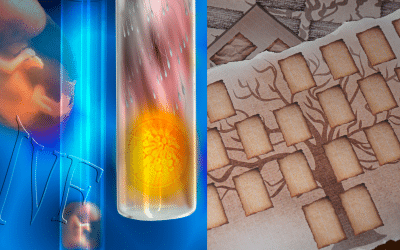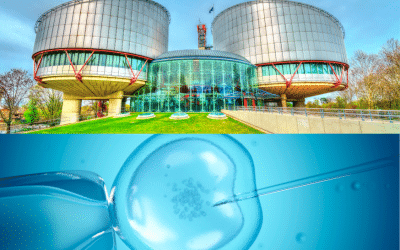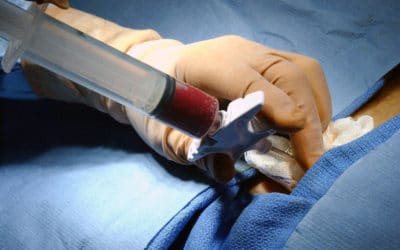On January 15, 2018, Arthur Kermalvezen, a 34-year-old French man born by artificial insemination by donor, announced to the press that he had contact with his sperm donor father on Christmas Day, by using a genetic test performed in the US and a genealogical survey.
Having always been aware that he was conceived with artificial insemination by donor, and after years of unsuccessful research, last September Arthur Kermalvezen ordered a DNA test from the American Society of Human Genetics “23andMe”. By ordering a simple salivary test for $ 99 by Internet and using the company’s DNA Relatives program which compares the genomes of other test users, a common origin was identified with a Franco-British man.
This young man indicated which French region he came from, and eventually, Arthur K. found the address of his sperm donor father. “I was 80% sure of my investigation,” says Arthur. “I wrote him a letter telling him my story, but I preferred to ask his neighbors to give it to him since I didn’t know if his entourage was aware of his donation. I introduced myself: my name is Arthur, I’m 34 years old and I’ve always wondered who to thank for allowing me to be born. After having conducted a long investigation “to be able to say thank you” and “ask why he decided to donate” he was contacted on December 25 by his sperm donor father. Arthur conducted this research along with 9 other young adults born from sperm donations, including his wife, Audrey Kermalvezen, a lawyer with a reputation for her legal battles to obtain access to one’s origins.
In France, there are regulations for artificial reproduction techniques. With the first bioethics law passed in 1994, the anonymity of gamete donation was guaranteed. Article 226-28-1 of the Penal Code states “To request testing of someone’s genetic characteristics outside the conditions laid down is punishable by a fine of 3750 €”. But, as Arthur K. says: although the principle of the anonymity of gamete donors may be stipulated by French law, “the reality of having access to one’s origins is a given fact today”.
By making this announcement just prior to the opening of the French National Consultations on Bioethics, Arthur Kermalvezen, former spokesperson for the association Procréation Médicalement Anonyme (Medically anonymous reproduction) and his wife Audrey, also born by artificial insemination from a donor, hope to have an impact on the debates regarding the anonymity of gamete donation.
Jean-René Binet, Law Professor at the University of Rennes and a specialist on bioethics states: “the principle of absolute anonymity is an anomaly which ignores a child’s rights to know his origin. In Europe, several countries like France, that had originally opted for confidentiality have recently renounced “.
Alliance VITA’s General Delegate, Tugdual Derville declares:
“The nature of the debate on abolishing the anonymity for artificial reproduction has changed due to the development of mega-medical databases. The fact that a simple test can identify sperm donors renders the promise of anonymity a serious health and social scandal. Just at the opening of the National Bioethics Consultations, this announcement is a real bombshell. Abolishing anonymity is not only inescapable for the future; it is also retroactive, for past donors, who were deceived. But be forewarned, lifting the anonymity will lead to multiple imbroglios. It will not address the injustice which results from the confusion of ruptured filiations between several men and women for the same child”.
MAR : Access to Origins, What is the Reality ?
Although the 2nd August 2021 bioethics law partly authorised access to their origins for children born by Medically...



